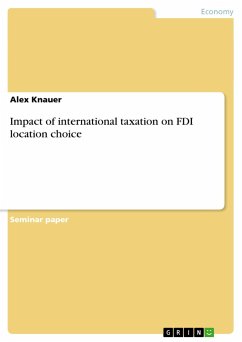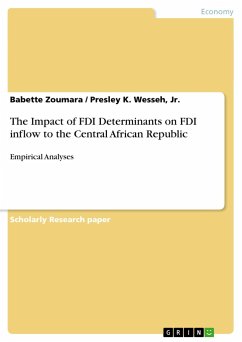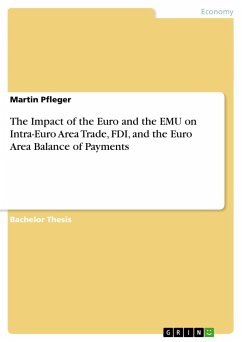Seminar paper from the year 2006 in the subject Economics - Finance, grade: 1,3, University of Duisburg-Essen (Mercator School of Management), course: Internationalisierung von Unternehmen, language: English, abstract: Foreign direct investment has often been of great importance for developing countries and countries in transition. These countries develop various strategies to attract FDI, one of which includes the taxation attractiveness. This paper deals with the impact of international taxation on investment location choice of multinational firms. General aspects of taxation of the FDI destination country and the source country are looked close upon. Such general tax factors like corporate income tax rate, indirect taxes and tax law transparency, as well as tax incentives and taxation in the investor's home country, play an important role for a multinational's investment location decision, especially for the decision of footloose industries like export-oriented firms or manufacturing companies. Further, bilateral tax treaties including provisions of foreign tax credits, exemptions and tax savings affect the investor's tax planning, since they may alleviate or completely eliminate the problem of double taxation. Tax avoidance is also an important factor described in the paper. High tax rates, tax incentives and tax treaties may encourage multinational firms to use tax avoidance strategies in order to qualify for tax incentives or extend received ones, or to carry out profit reallocations.








